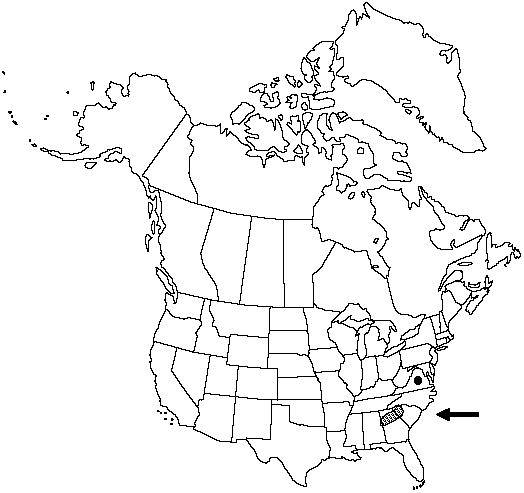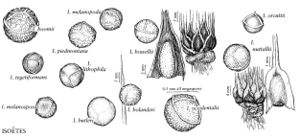Isoëtes virginica
Claytonia 3: 29. 1937.
Common names: Virginia quillwort
Synonyms: Isoëtes virginica var. piedmontana N. E. Pfeiffer Isoëtes piedmontana
Treatment appears in FNA Volume 2.
Plants becoming terrestrial. Rootstock nearly globose, 2-lobed. Leaves deciduous, dull green, pale to dark brown toward base, spirally arranged, less than 30 cm, pliant, gradually tapering to tip. Velum covering less than 1/3 of sporangium. Sporangium wall brown-streaked to completely brown. Megaspores white, 400–480 μm diam., boldly tuberculate to rugulate with cristate, occasionally branched to anastomosing ridges; girdle obscure. Microspores light brown in mass, 27–33 μm, spinulose. 2n = 22, 44.
Phenology: Spores mature late in spring–early summer.
Habitat: Mud flats and depressions on and around granite outcrops
Distribution

Ala., Ga., S.C., Va.
Discussion
Short plants with 15 to 50 leaves and a tendency toward lower and more open megaspore ornamentation have been called Isoëtes virginica var. piedmontana Pfeiffer.
Selected References
None.
Lower Taxa
None.
